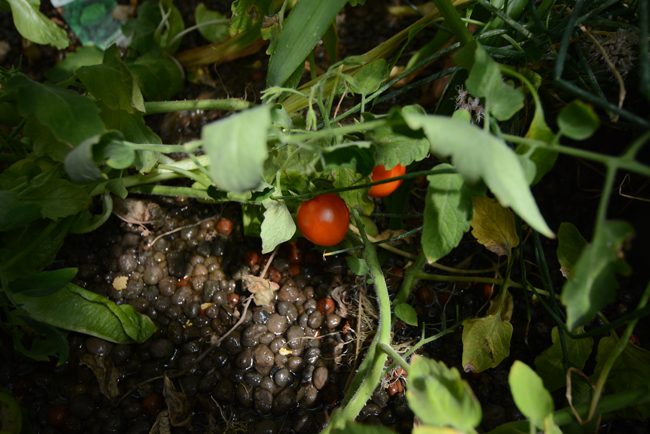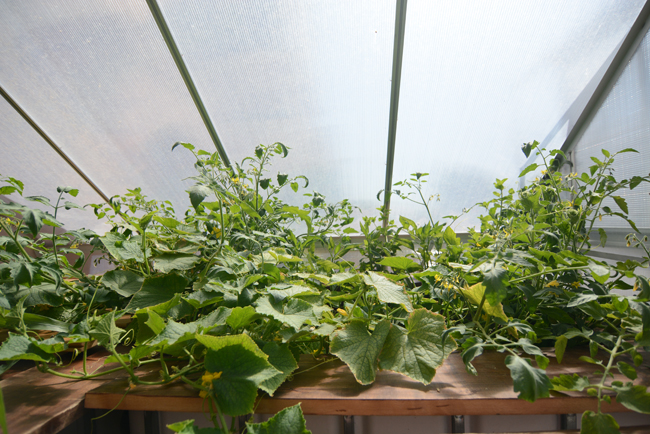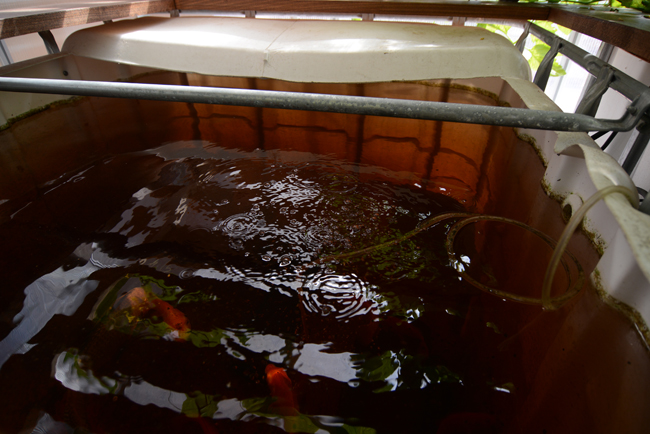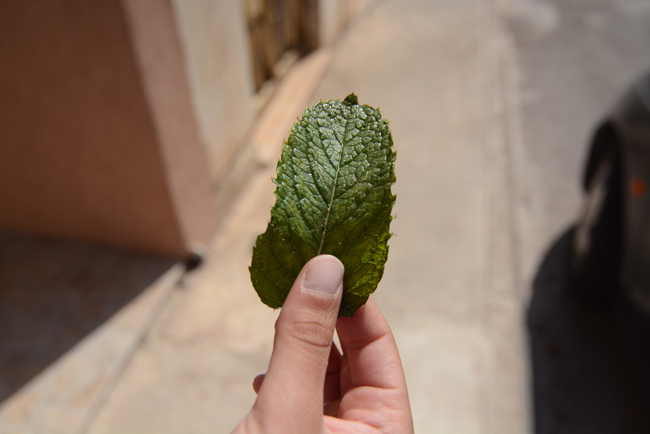In his miniature front yard greenhouse, Alex Sakota has an impressive range of produce growing: cucumbers, tomatoes, green peppers, mint and oregano. But that’s nothing new. What is new is that the greenhouse is completely soil-free, and it is fish manure that is providing a natural food source for the plants to grow. The plants, on the other hand, offer a natural filter for the water the fish live in. Therefore, plants and fish are growing in one integrated system and water is continuously being recycled rather than being lost in soil.
Within the EU, this system, called aquaponics, has not yet been established as an organic method of growing plants. However, Alex insists that the produce is much healthier than that grown in traditional ways. “If any pesticides are added, the fish will die after a mere half-an-hour. This is guarantee enough that the products are completely natural.”
In contrast to traditional farming, which requires time for ploughing and maintenance, this system only involves feeding the fish every day and adding some water every couple of weeks because some of it evaporates.

This arrangement provides the possibility of growing produce outside its season and usual environment – Alex even managed to grow fresh corn in January. Despite the lack of fertilisers, produce is able to grow more quickly than in soil.
Alex’s idea began by mere coincidence when his friend accidently spilled grape seeds in his aquarium filter. Later on, they noticed a plant growing in that filter. Researching the subject of aquaponics, Alex decided to try it out in his parent’s front yard. He does admit that his father was sceptical at first, but once the idea took off and proved successful, his parents have been more than happy with the range of produce they are able to enjoy and their neighbours also often stop to inquire about the project. Environmental enthusiasts have also expressed great interest in the project and Alex is now hoping to consolidate funding programmes with the government to try to push this production method into the public sector.

Malta currently imports €1.4million worth of strawberries and €800,000 of lettuce each year, but Alex is confident that this number could be reduced dramatically if the public embraced the idea of aquaponics. The system can be installed more or less anywhere: back gardens, rooftops and balconies. “Residents of apartment blocks should discuss the idea of having a community garden on their roof,” says Alex. For a family of three or four, two growing beds are more than enough, but a larger-scale system can support six growing beds.

International reports say that, given the food crises, and the uncontrollable use of fertilisers, aquaponics is indeed the way forward.
Aquaponics uses one tenth of the water used in soil-based farming and even less than in hydroponics or recalculating agriculture. Hydroponics too is a soil-less alternative – plants are grown in their mineral nutrient solution, or may be enclosed in a substrate such as perlite, sawdust and pebbles.
